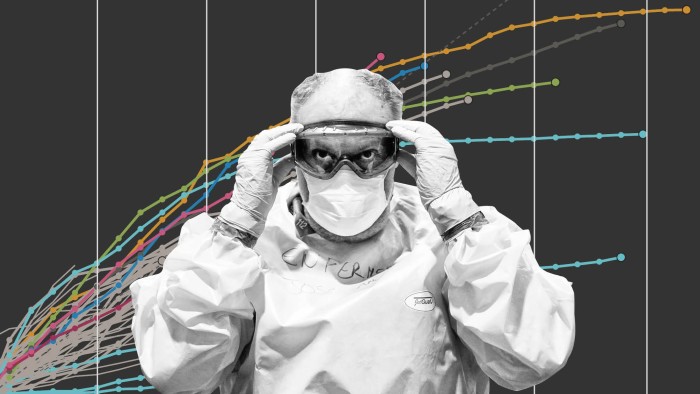Effects of pandemic will widen inequality, report finds

Roula Khalaf, Editor of the FT, selects her favourite stories in this weekly newsletter.
The effects of the coronavirus pandemic will exacerbate existing inequalities in society, according to research that shows lockdown measures and strain on the National Health Service will hit the most vulnerable hardest.
The Institute for Fiscal Studies, a think-tank, warned in a report that disruption to the NHS and the accelerating economic downturn would have wide-ranging public health consequences, potentially leading to worse child health, increased rates of chronic illness and “deaths of despair”.
The briefing, which said government measures would be crucial in mitigating future inequality, echoed other warnings that the poorest in society were at the sharp end of the crisis.
Responding to the IFS report, Michael Marmot, director of the UCL Institute of Health Equity, said the government should avoid the “mistakes” of the austerity policies following the 2008 financial crisis in its response.
Heidi Karjalainen, a research economist at the IFS, said low-income families were among groups vulnerable to the economic shutdown and long-term impact on mental and physical health.
“By making sure that the groups that are most at risk are also protected from the negative effects of a downturn, the government can help minimise the long-run detrimental health impacts that would otherwise occur,” she added.
According to the IFS, elderly people and those from the most deprived backgrounds are more likely to suffer the impact of knock-on strain on the NHS from coronavirus, as operations and other treatments are delayed.
Planned hospital admissions per head are more than six times higher among those in their seventies and eighties than among those in their twenties, and 4.5 times higher than among those in their thirties. So older people will also be hit harder by the decision to cancel all non-urgent operations.
In the longer term, the expected economic downturn will hit the jobs and financial security of low-income families, young workers and women hardest, the IFS said.
Estimates suggest that a 1 per cent fall in employment leads to a 2 per cent increase in chronic illness — potentially resulting in more than 900,000 people of working age developing a chronic health condition than would otherwise, according to the think-tank.
Editor’s note

The Financial Times is making key coronavirus coverage free to read to help everyone stay informed. Find the latest here.
Economic shocks would hurt some industries more than others, it added, warning that regions dependent on sectors such as tourism could experience economic collapse and consequent increases of “deaths of despair” such as through suicide, alcohol and drug abuse.
Responding to the findings, Prof Marmot, said cuts to government spending that followed the 2008 financial crisis led to a rise in inequality and flatlining life expectancy growth in the UK.
People who lived in overcrowded housing, on the poverty line or in jobs on the front line of the Covid-19 response were most likely to become ill during the pandemic, he added.
“All of those things will make inequalities worse and will have damaging effects in the longer term,” said Prof Marmot. “It becomes even more urgent not to repeat the mistakes of 2010.”
Comments